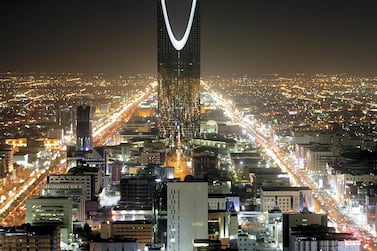A consortium led by France's Engie reached financial close on the 3B independent water project in the kingdom that will supply potable water for the cities of Jubail and Dammam.
The Saudi Water Partnership Company (SWPC) reached financial close on the project alongside developers Engie, which has a 40 per cent stake in the project, Nesma Company Limited (30 per cent) and Abdulaziz Al Ajlan Sons for Commercial and Real Estate Investment Company (30 per cent). The parties did not disclose the value of the transaction.
The plant, which is based on reverse osmosis technology, will produce 570,000 cubic metres per day of potable water supply.
Reverse osmosis is a process in which water flows through a membrane that separates out heavier sediments and salts. Desired minerals like calcium and magnesium are also added to the filtered water before packaging or transporting it for consumption. Many Gulf countries have switched to using the process over the past decade as it is less energy intensive than the thermal method currently in use for desalinating water.
The Jubail 3A Independent Water Project is one of the largest public-private partnerships for a desalination scheme in the world.
The consortium, led by Engie, signed a 25-year water purchase agreement with the SWPC after emerging as the preferred bidders for the desalination project.
The SWPC will look to "enhance private sector participation in sustainable development by providing the opportunity for local and foreign investors to participate in the implementation of these projects", Khalid Al Quraishi, chief executive of SWPC, said.
The consortium was awarded the project in April after submitting a successful bid of 1.591 halalas per cubic meter of potable water.
The plant will include storage facilities for one operational day in addition to in-house renewable energy capacity to reduce grid electricity consumption throughout the desalination process, Engie said in a statement.
The desalination scheme is being built on the basis of a build, own, operate contract, with commercial operation on the project expected to begin in 2024.








